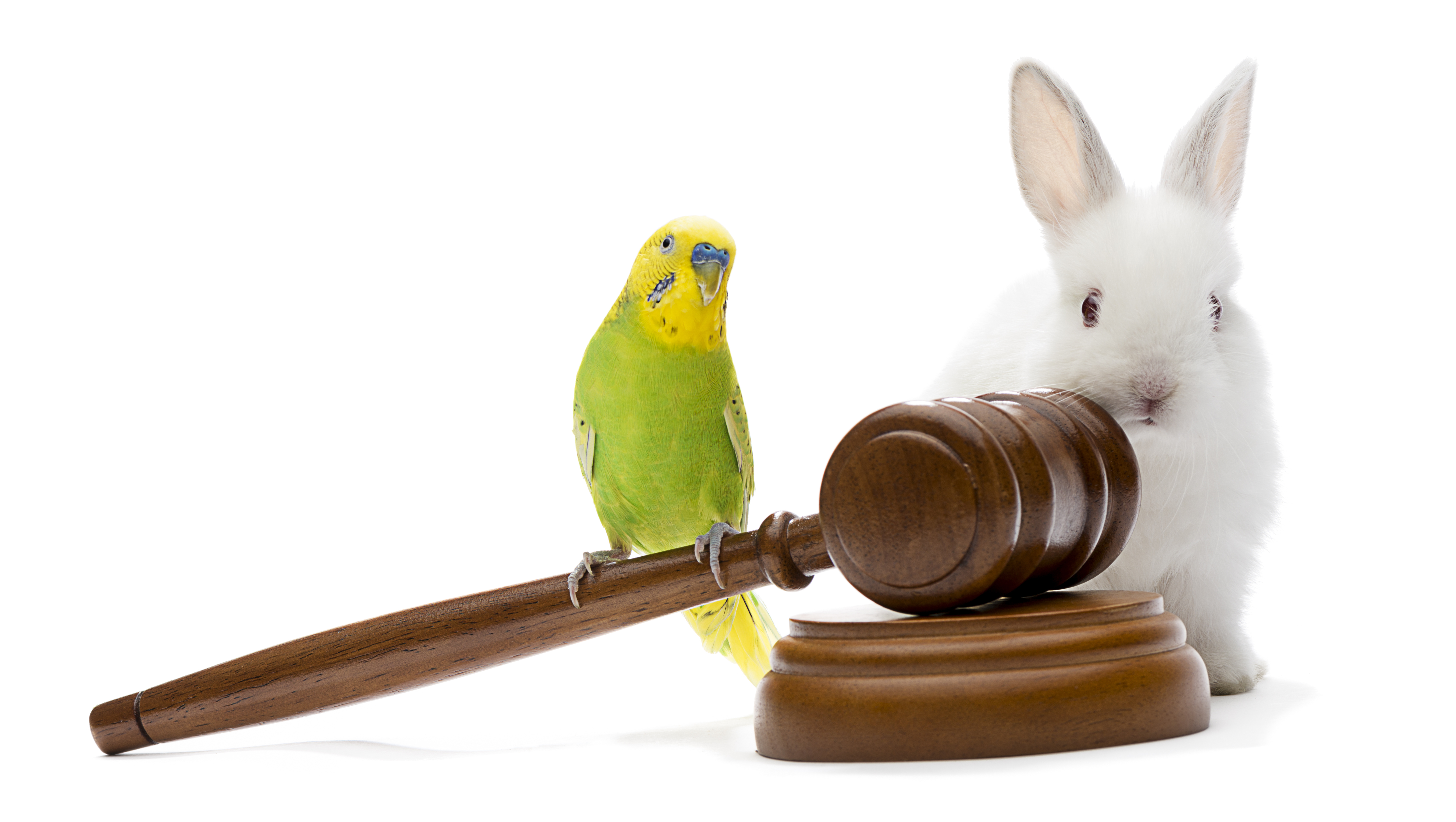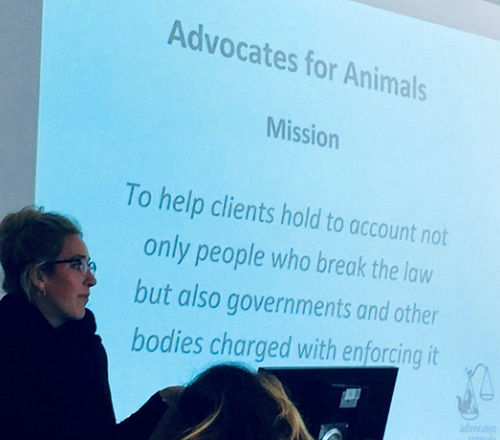
Co-founder of animal protection firm Advocates for Animals Edie Bowles talks us through the area of animal law and what you can expect from a career in this developing area.
What is animal law?
Unlike other areas, animal law doesn’t sit neatly in one practice. Instead it spans many disciplines. It is essentially the intersection where the law meets an animal.
What are those disciplines? Could you give examples?
Of course, well for example there is criminal law when it comes to trying to secure prosecutions against animal abusers, public law when it comes to challenging policy decisions made by public bodies that affect the lives of animals, privacy/GDPR/confidentiality laws in relation to undercover investigations, freedom of information to help understand what is taking place behind the scenes, chemical safety law with regards to animal testing and much more.
If animals are your clients, who instructs you?
I do have animal lawyer friends who work directly on behalf of the animals through donations and grants; however, our business model is more conventional, our clients tend to be animal charities that wish to use the law to further their campaign goals.
How do animals’ legal concerns differ from humans’?
Great question. Well the needs are the same. Like humans, animals need to be protected; however, the emphasis is different. With humans you cannot cause physical harm without a lawful reason e.g. self-defence. With animals, human interest trumps an animal's interest and as such you can harm an animal so long as it is not gratuitous (this is encapsulated by the concept 'unnecessary suffering' in the Animal Welfare Act). It's almost a reversed position.
"I have recently been advising several groups on the legal risks attached to undercover investigations. My role is to identify those risks and provide ways to mitigate them."
Tell us about a recent case you’ve worked on - the problem, your role, the organisations you interacted with, the outcomes.
Due to client confidentiality I can't reveal the organisations, but I have recently been advising several groups on the legal risks attached to undercover investigations. My role is to identify those risks and provide ways to mitigate them. Investigations of this nature are essential to inform the public about what goes on behind closed doors, without them so many awful abuse cases, which have led to successful prosecutions, would never have seen the light of day.
Animals have no money: how do you (duck)bill your client?
Ha! See above re who our clients are; however, I would happily take on a case for a dog pro bone-o (too much?)
What are the highs and lows in this practice?
Easy to answer this question. The highs are being able to have a career that I am passionate about and help ensure justice for those who have been silenced. The lows are being exposed to horrific cruelty and at times being powerless to do anything about it. In fact, another low is the failure of people to take this area seriously; animal rights does not have to be your cause of choice for you to recognise that they need protection under law and those laws need to be upheld. Sadly, this mentality in people leads to a general complacency, which facilitates a climate of cruelty.
"The highs are being able to have a career that I am passionate about and help ensure justice for those who have been silenced. The lows are being exposed to horrific cruelty and at times being powerless to do anything about it."
With animal suffering being a daily theme, is this sector a place for animal lovers?
As you can see, I do struggle with this, but there is not any other job I would rather have and in fact knowing the suffering exists helps motivate me even more to challenge it. Although it really does depend on the person, there may be people who would find it too heart breaking, in which case they might be more helpful working in the corporate sector and donating money to animal charities.
How easy is it to set up your own firm?
I tend to forget previous pain, but the fact that this firm has been years in the making should indicate that it is not without its challenges. Before we could launch we needed to make sure we had finances, clients and infrastructure in place to ensure we would survive. Sadly, the hard work is not over, we are still in start-up phase; each of us are having to do the job of four. All that aside, I would do it all over again, the excitement far outweighs the stress.
This is a brave step. Do you expect copycat firms to appear?
Perhaps in time, we will see. Any organisation with the objective of helping those in need (be it human or animal) has my support.
What were you doing before you set up Advocates for Animals?
I was working in-house at Cruelty Free International, an anti-animal testing organisation. This was my introduction to animal law practice and where I first worked with David Thomas (Advocates for Animals Co-founder) who taught me all the useful and creative ways you can use the law to assist campaigns and help improve the lives of animals.
What’s your advice for a student looking into this area?
My standard advice tends to be:
1) Trust your own journey. While your peers will be going down a very structured path of applications, vacation schemes and training contracts, your journey will not be as clear. Animal law is a new field and as such you really do need to blaze your own trail, which is absolutely possible.
2) It is worth considering what other area you could work in while you are waiting on an animal law job to come up, this might be a practice area that overlaps, such as public or criminal law or a different role in an animal charity, such as policy advisor. This is purely a practical point and does not mean giving up.
3) And finally, Action, Action, Action! This last point applies to anyone wishing to pursue any career, there are too many amazing people out there for you not to have to go above and beyond. This could mean attending relevant conferences, staying up to date on the law and jumping at any work experience.
Most trainees will go into commercial law first - can they sidestep into animal law?
Due it only just becoming an established area, everyone is essentially side-stepping from another discipline. However, this will need to be coupled with a genuine interest and commitment to the role.
"The world is changing. More and more people are starting to think about the rights of non-human animals; the law is just a reflection of social attitudes after all."
Do you foresee growth in this sector?
One hundred percent yes. The world is changing. More and more people are starting to think about the rights of non-human animals; the law is just a reflection of social attitudes after all.
What is the big story affecting animal law?
Brexit of course. We need to make sure that there is not a dilution of standards when we leave the EU, which is a serious risk with future trade deals. We should also make sure we use Brexit as an opportunity to improve standards that we were unable to do when tied by the EU's free movement.
And finally, what’s your favourite animal and why?
I do not have a favourite species; animals are the same as us, they each have unique personalities. However, I do have a favourite animal and his name is Toby (my cat).

Interview conducted by editor Antony Cooke. First published September 2019.